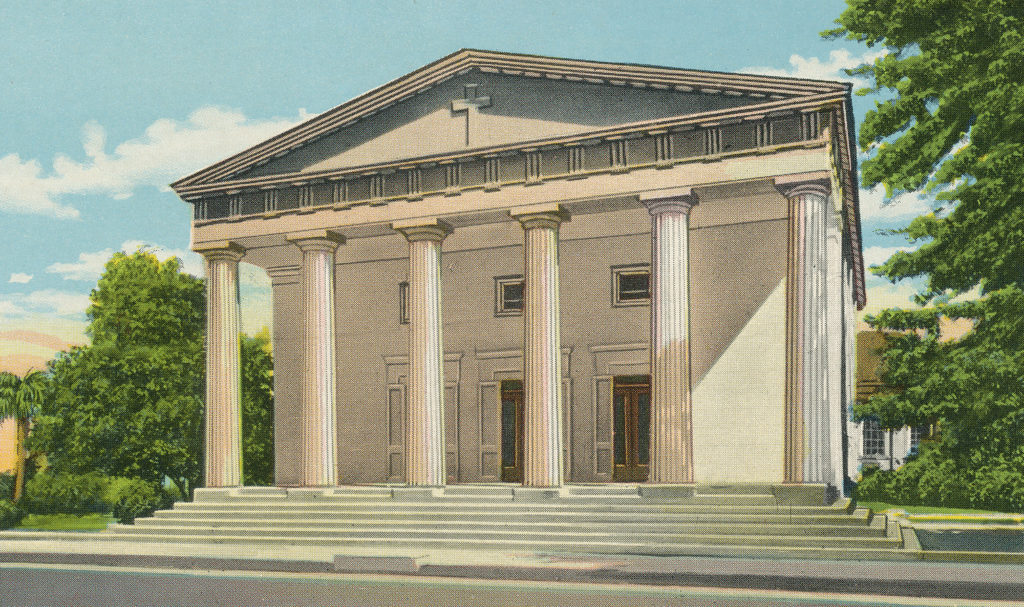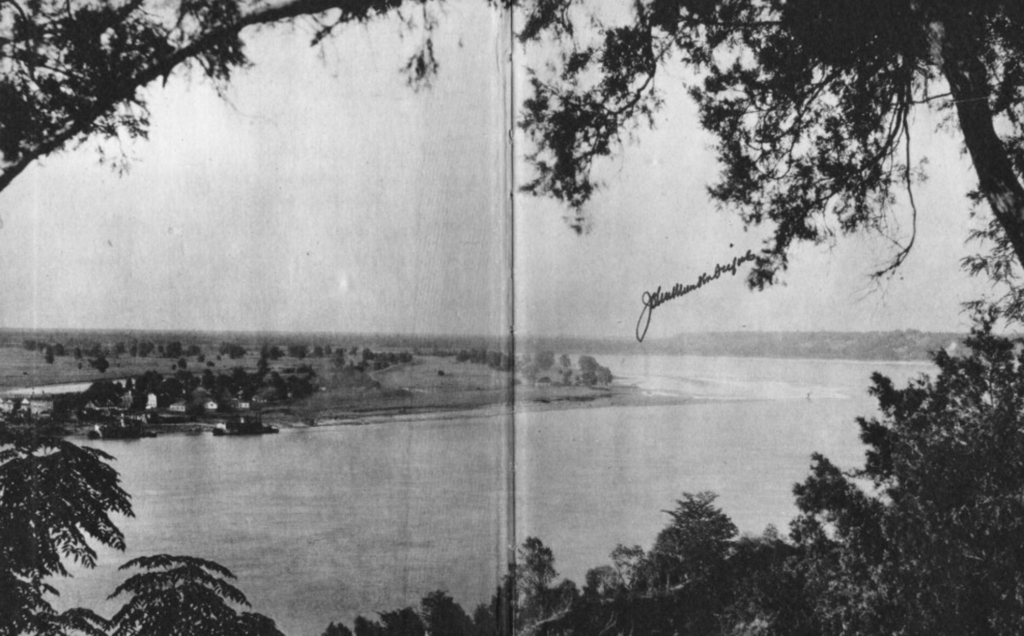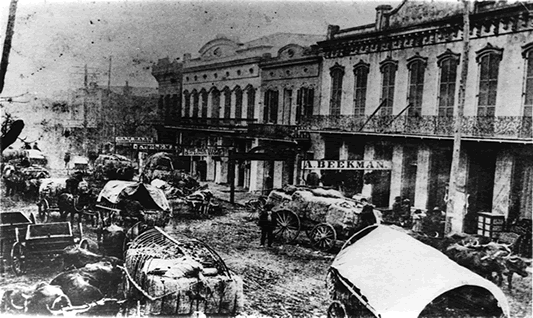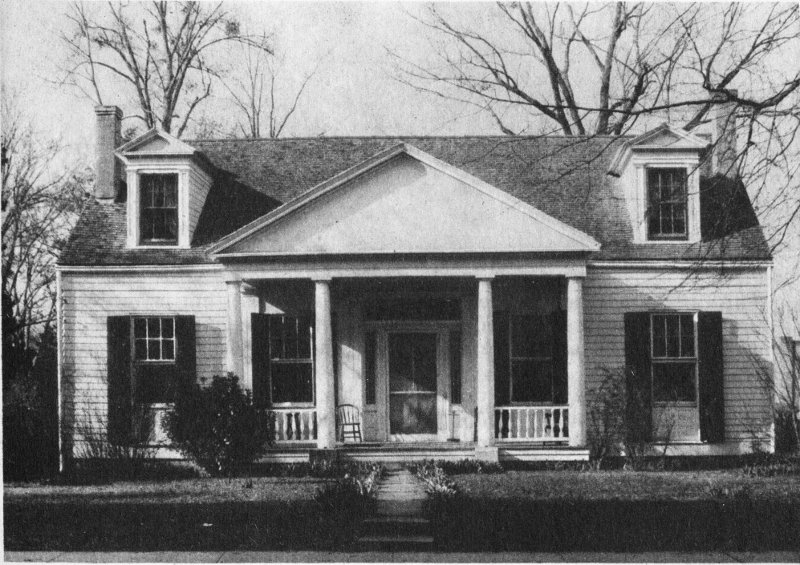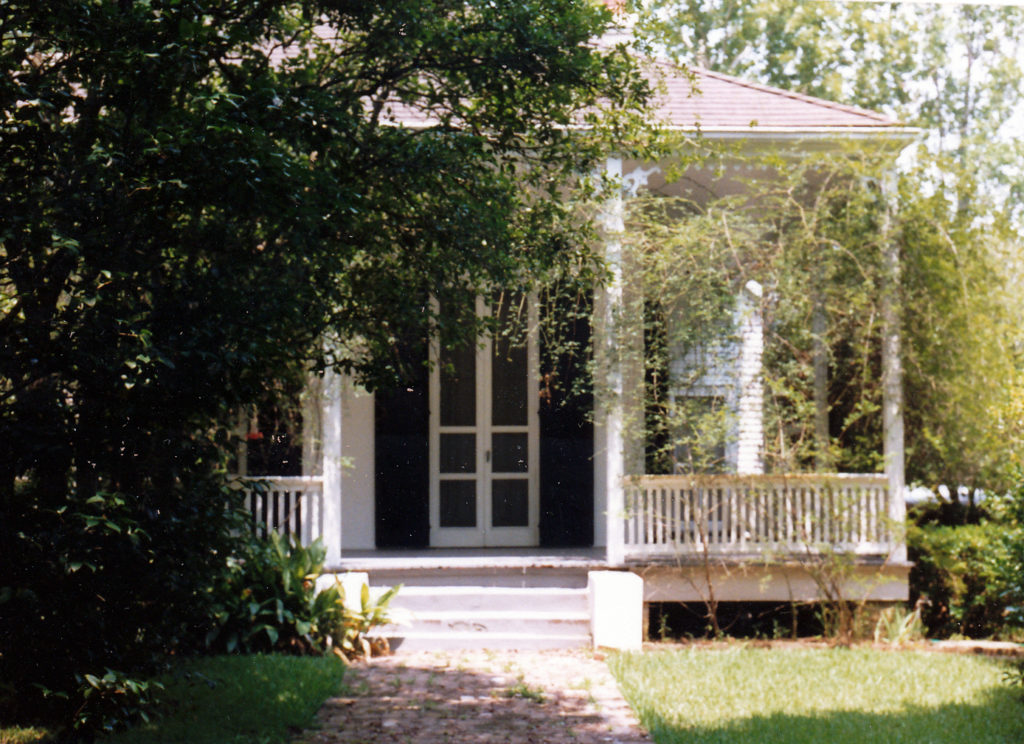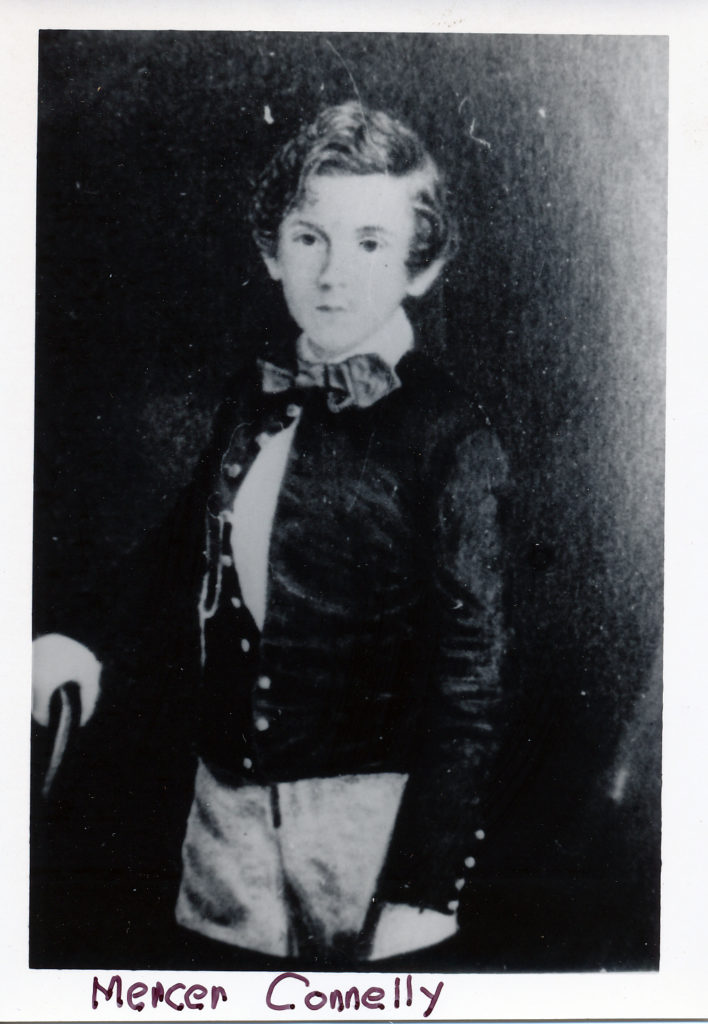In 1832, Cornelia and Pierce Connelly moved to Natchez, Mississippi due to Pierce’s assignment as the rector of the Holy Trinity Episcopal Church. Natchez was very different from their home city Philadelphia. Located on the banks of the Mississippi River, Natchez was an important port city in the antebellum South. Natchez’s proximity to many plantations allowed it to become one of the major southern cities that operated as a center of slave trade besides New Orleans, Louisiana. This new home would be far different from the life they had experienced in Philadelphia; Natchez’s economy thrived on “King Cotton,” as the city was surrounded by large cotton plantations, worked by enslaved people.
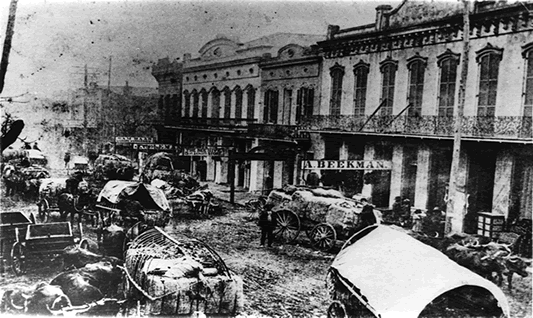
Pierce acted as rector of the Holy Trinity Church. Pierce was the only Episcopalian rector in a vast parish territory and would often travel to give sacraments and preach in the surrounding area. Cornelia’s role as rector’s wife required her to be welcoming to the community and followers of her husband’s church. Pierce and Cornelia met many significant and wealthy gentry who would have a role in the family’s future and faith.
The family grew in Natchez when Cornelia gave birth to their first child, Mercer Lewis Connelly, on 17 December 1832. Their second child, Adeline Maria Duval was born 6 March 1835. Collectively Cornelia and Pierce’s faith would change as their family grew along with their societal relationships. At the time, the Roman Catholic faith and Catholic immigrants were under attack within the United States. In Natchez, they met significant followers of Catholicism, including Joseph N. Nicollet who encouraged Pierce and Cornelia to learn more about the faith. Nicollet, the French immigrant, explorer, and mathematician introduced Pierce to Bishop Rosati, Catholic Bishop of St. Louis in September 1835, following his resignation the prior month. Cornelia, aware of the attacks on Catholics, also took time to learn about the faith and found herself drawn to the beliefs. In letters to her sister, Adeline Duval, Cornelia expresses her apprehensions with Protestantism. Once Pierce discussed conversion to Roman Catholicism with Bishop Rosati, the decision was made for the family to travel to Rome. They left Natchez in November 1835 to begin their trip.
The Connellys conferred with missionary bishops while delayed in New Orleans and Cornelia asked to become a Catholic before sailing abroad. Bishop Rosati received her abjuration and Bishop Blanc gave her First Communion. They did return to Natchez after their time in Europe but did not stay long before relocating to Grand Coteau, Louisiana.
Click here to download a detailed timeline of Cornelia in Natchez juxtaposed with then-current events.

